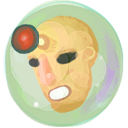In an Forbes blog post, Jason Nazar, founder of DocStoc, provides 20-somethings with a to-do list of 20 things to be successful in their careers. I’d say the list is universal advice, but his advice on technical literacy strikes a cord with me.
You HAVE to Build Your Technical Chops – Adding “Proficient in Microsoft Office” at the bottom of your resume under Skills, is not going to cut it anymore. I immediately give preference to candidates who are ninjas in: Photoshop, HTML/CSS, iOS, WordPress, Adwords, MySQL, Balsamiq, advanced Excel, Final Cut Pro – regardless of their job position. If you plan to stay gainfully employed, you better complement that humanities degree with some applicable technical chops.
In my past lives, I’ve spent many a cozy evening learning a technology for work, and in my 20’s that work was most often technology related. But in recent years, I’ve seen technology illiteracy first hand through my work as a marketer and my interactions with farmers.
When you move outside the IT, development, QA, or support offices, being technology illiterate is often worn like a badge of honor. It becomes an excuse not to know something, and consequently an excuse not to communicate. Every time I hear a variation of “I don’t anything about this whole computer thing,” I throw up in my mouth a little.
You don’t hear the illiterate brag about not being able to read a book. In 21st century life, bragging about being a digital illiterate is akin to not knowing how to read in the 20th century.
Scratch breaks the illiteracy in a fun, easy way. Young programmers, especially wanna-be game programmers, are easily attracted to Scratch. It’s the obvious target group, but I have a lifelong tendency to search out and explore the less obvious.
When I write about Scratch, however, I tend picture my primary audience as a non-programmer, as someone who has no life goal to be a programmer, or as a parent who wants to introduce Scratch to a kid. It’s why I devote as much or more time to creating non-game projects as I do creating games. This is a unique perspective among the plethora of Scratch tutorials on the market today.
Programmers-in-training will certainly benefit and learn how to program with my Beginner’s Guide books, but everyone will learn that being competent behind the keyboard offers the freedom to communicate. That’s lifelong literacy.
Scratch 2.0 Beginner’s Guide is in progress. Scratch 1.4 Beginner’s Guide is a perfect companion book for Raspberry Pi users.



